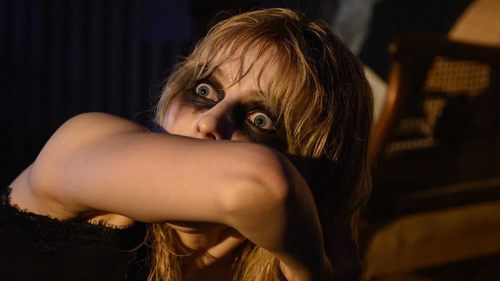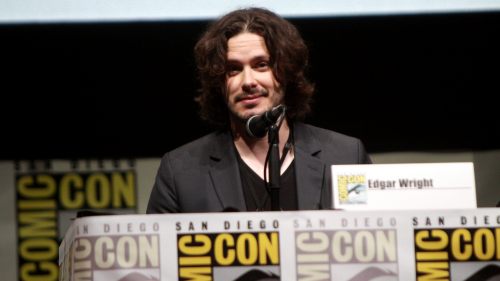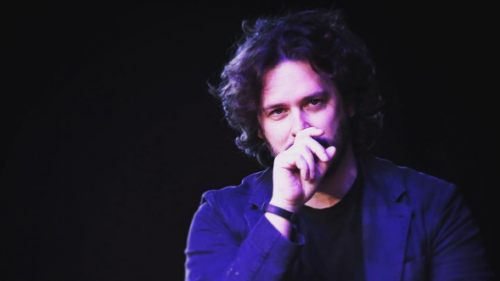Once Upon A Pair Of Wheels: The Noir Fairytale Of BABY DRIVER
The diner is a neon-lit oasis in the city at night. Open 24 hours, it’s reliable, intimate yet anonymous. The diner is a sacred place, safe harbor. It’s where Thief’s Frank and Jessie “cut the mini-moves and the bullshit, and get on with this big romance.” It’s where Jules announces his resignation from his life of crime in Pulp Fiction. “A poet could write volumes about diners, because they’re so beautiful,” David Lynch once said, and all his characters seem to end up in a diner sooner or later. The diner is where Baby and Debora meet and fall in love, the perfect place for the fairytale of Edgar Wright’s Baby Driver to begin. And Baby Driver is, more than anything else, a fairytale — a fairytale reimagining of noir, the dream of a Michael Mann character made reality. It takes well-worn tropes of the crime film and upends them. If The Driver was about “the muscle, the sinew, the tissue, the very nerve center of a getaway driver” as Walter Hill described it, then Baby Driver is about a getaway driver’s heart and soul.
With Ansel Elgort’s getaway driver Baby behind the wheel, cars emote. The car becomes an extension of Baby, expressing what he’s feeling, whether he’s listening to The Jon Spencer Blues Explosion’s “Bellbottoms” or bungling a getaway because he’s witnessed a mid-heist murder of a security guard. Unlike Alain Delon in Le Samouraï or Ryan O’Neal in The Driver, Baby has stuff, mementos, cherished items. He keeps things other people leave behind in cars: iPods, sunglasses. He always remembers to spread the peanut butter to the edges of the bread when he makes a sandwich for his foster father Joseph (CJ Jones). He has iPods for every day and for every mood, even one covered in pink glitter for when he feels pink and glittery. At first glance, Baby seems to share the macho stoicism of his cinematic predecessors, but it’s a facade, a defense mechanism. Baby constantly listens to music and wears sunglasses because he needs to drown out the world and the ringing in his ears caused by a childhood accident that killed his parents and left him with tinnitus.
Baby’s and Debora’s love story seems old-fashioned, but in the world of crime stories, it’s radical. In heist films or the car films, women are usually absent (e.g. Reservoir Dogs), and when they do show up, they’re treated badly, they’re collateral damage, they’re deadweight. Partners in crime are more often than not ill-fated: Bonnie and Clyde, Badlands, Jon Hamm’s Buddy and Eiza González’s Darling. In Thief, James Caan’s Frank leaves Jessie (Tuesday Weld) behind, despite the intimacy and sincerity of their romance. Like Walter Hill’s The Driver, everyone’s dialogue in Baby Driver is hardboiled, but Baby’s and Debora’s interactions have the earnest sweetness of Hill’s Streets of Fire. Lily James’s Debora is a diner waitress — another crime film archetype — who works at Bo’s Diner where Baby’s mother used to work. The mural in Bo’s Diner is Debora’s dream: a couple in a ’59 Chevy Impala convertible, alone in the desert, watching the sunset, a Route 66 road sign beside them. It’s another kind of getaway, a getaway to a nostalgic American paradise. For Debora, the diner mural is like Frank’s collage in Thief or Max’s photograph of the Maldives in Collateral. Debora’s mural is always there in the backdrop of her life. When Debora confesses to Baby she wants to head west in a car she can’t afford and never stop, Debora’s dream becomes Baby’s dream.
Debora is ride or die. Even when the full horror of Baby’s “job” reveals itself to her, she believes in him. Joseph aside, the men in Baby’s life bully him, challenge him, try to stop the music. Baby’s father was indirectly responsible for the car crash that killed Baby’s mother and himself, the crash that destroyed Baby’s first iPod. Jamie Foxx’s Bats pulls the earbuds out of Baby’s ears. Buddy, who shares Baby’s earbuds and listens along with him in the beginning, tries to eliminate Baby’s hearing altogether in their final showdown. But Debora is in tune with Baby — she even walks to the rhythm of Baby’s music when he first sees her. They are always in sync, their feet tapping to the same beat as they listen to T. Rex in the laundromat, their fingertips circling the rims of their wine glasses on their fancy restaurant date.
When Bats enters Baby’s life and starts killing people, Baby’s romantic notions about a life of crime disappear. Actions have consequences, people get hurt, and Baby realizes that he’s complicit. Jon Bernthal’s Griff even says, “You can’t be in crime without being a little criminal.” Like The Driver’s characters, Bats, Buddy, even Kevin Spacey’s Doc are crime-story archetypes. Doc is the paternalistic, dangerous crime boss, not unlike Robert Prosky’s Leo in Thief. Baby only works for Doc and his ever-changing crews because he owes him a debt. Bats is a “walking death wish” — an amoral psychopath, an agent of chaos. Bats correctly points out that Buddy is worse, though: “You’re a bigger fucking crook than I could ever be.” Buddy is the capitalist’s final form: a coke-addicted stockbroker on the run from his own life with his favorite stripper. He’s Baby’s cosmic opposite: a guy who had it all, valued none of it, never took any responsibility, and wasn’t held accountable. They are like ghosts of Baby’s violent father, demons that Baby must systematically exorcise.
Baby Driver subverts the masculine myth of the crime film. Baby lives in a world haunted by his father, a world of violence ruled by psychopaths who kill at the drop of a hat, with Joseph as the only real exception. Baby’s real father, Doc, Bats, and Buddy all threaten the dream, his fairytale ending. It’s his mother’s world he returns to at the end of Baby Driver: a golden world of warmth, soft light, the sound of his mother singing “Easy,” and Debora. In Thief, Frank tells Jessie: “You got get to where nothing means nothing…I don’t care about me, I don’t care about nothing…I know that I survived because I achieved that mental attitude.” And Bats tells Baby: “In this business, the moment you catch feelings, is the moment you catch a bullet.” In any other movie, Bats’s statement would foreshadow Baby’s fate. In Baby Driver, it’s Baby’s sign that it’s time to retire, to take back control of his life. It’s the philosophy of his predecessors, who exist in a kind of existential limbo, without permanence or the ability to form attachments. They have their “magic act,” an escape — for Frank it’s safecracking, for Baby it’s getaway driving. But Baby is different, he’s kindhearted and innocent. Even Doc agrees: “He’s a good kid and a devil behind the wheel.” Baby defies genre expectations. He takes responsibility, and he takes control. Instead of burning it all down like Frank, Baby saves what’s most important: Mom’s cassette tape, Joseph, and Debora.
The car crash that killed Baby’s parents and gave Baby his tinnitus changes his life forever. This kind of trauma usually creates the monsters that populate crime fiction — from Francis Dolarhyde in Thomas Harris’s Red Dragon to Rudy ‘Pinhead’ Torrento in Jim Thompson’s The Getaway, childhood trauma figuratively and literally disfigures these characters. But Baby doesn’t forget his past, he’s not ruined by it, he uses it for good. He transmutes his weakness into strength. Baby’s trauma gives him his superpower. Baby Driver abandons the moroseness and masculinity entrenched in these kinds of crime movies. Even the title Baby Driver feels a little bit like a “fuck you” to the hardboiled machismo typical of these films. This is a coming-of-age story where Baby doesn’t lose his innocence, he reclaims it. Baby redeems himself, transcends the trauma of his past, eludes the violence of his father and of his cinematic predecessors. He makes music out of the taunts of bullies. He catches feelings, and he doesn’t catch a bullet. He gets a second chance. None of it comes easy, but it’s like Dolly says: you can’t have a rainbow without a little rain.



